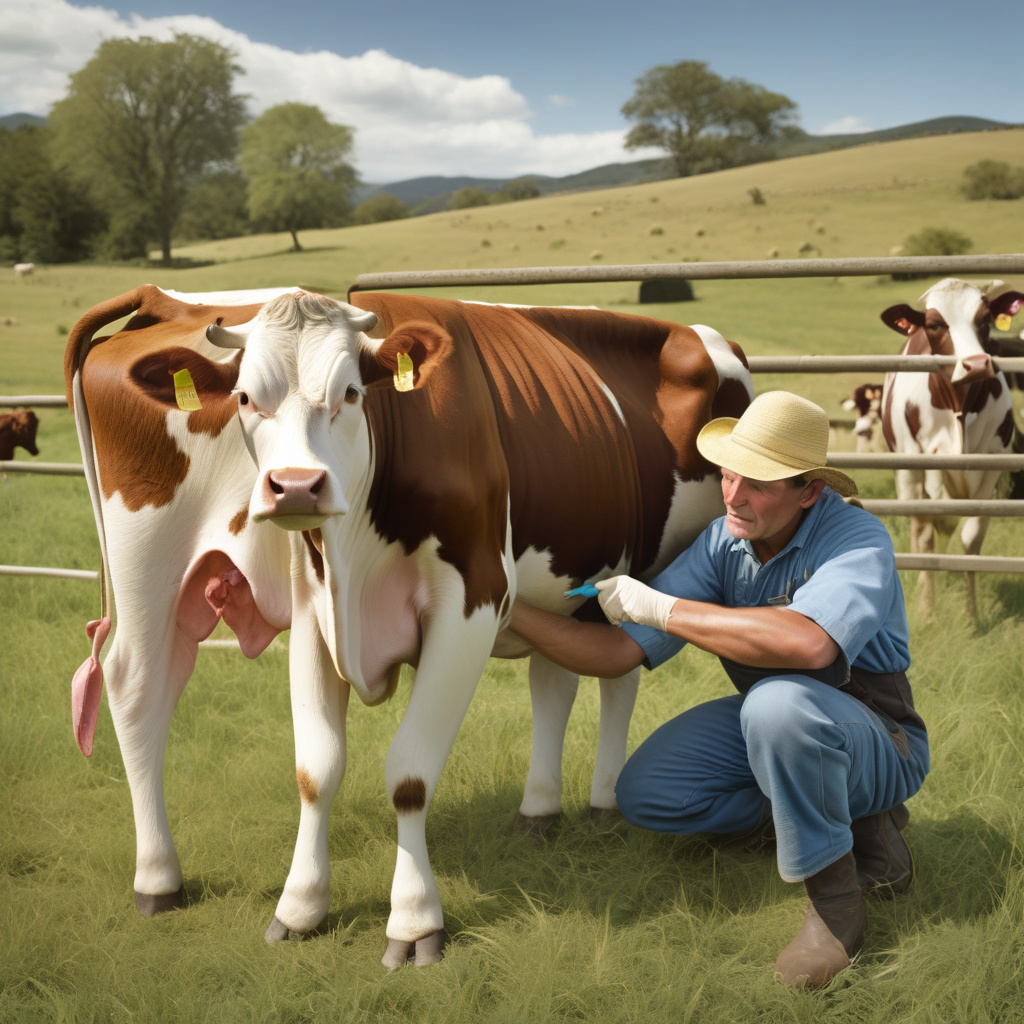NOAH Advocates for Livestock Vaccination to Ensure Sustainable Farming Practices
In preparation for World Immunisation Week, the National Office of Animal Health (NOAH) is spearheading a campaign to underscore the pivotal role of livestock vaccination in promoting the sustainability of farming practices. The initiative aims to raise awareness about the importance of proactive vaccination strategies in safeguarding animal health, ensuring food security, and fostering a resilient agricultural sector.
Livestock vaccination plays a crucial role in preventing the spread of infectious diseases among animals, thereby averting potential outbreaks that could have devastating consequences for both animal welfare and agricultural productivity. By implementing comprehensive vaccination protocols, farmers can effectively protect their livestock from a wide range of diseases, including foot-and-mouth disease, avian influenza, and bovine tuberculosis.
One of the key benefits of livestock vaccination is its contribution to food security. Healthy animals are essential for maintaining a stable food supply chain, as they support the production of high-quality meat, dairy, and other animal products. By reducing the prevalence of diseases through vaccination, farmers can enhance the overall health and well-being of their livestock, ultimately ensuring a sustainable source of nutritious food for consumers.
Moreover, vaccination also plays a critical role in promoting the sustainability of farming practices. By preventing disease outbreaks, farmers can minimize the need for antibiotic treatments, which can contribute to the development of antimicrobial resistance. Sustainable farming practices prioritize the health and welfare of animals, as well as the long-term viability of agricultural operations. Through proactive vaccination initiatives, farmers can align with these principles and contribute to the overall sustainability of the livestock industry.
NOAH’s advocacy for livestock vaccination guidelines serves as a timely reminder of the interconnectedness between animal health, food security, and sustainable agriculture. By promoting the adoption of vaccination best practices, NOAH is empowering farmers to proactively protect their livestock, enhance food production, and contribute to the resilience of the agricultural sector.
As World Immunisation Week approaches, it is essential to recognize the critical role that livestock vaccination plays in ensuring the health and well-being of animals, the sustainability of farming practices, and the security of the food supply chain. By prioritizing proactive vaccination strategies, farmers can contribute to a more resilient and sustainable agricultural sector, ultimately benefiting both animals and consumers alike.
In conclusion, NOAH’s advocacy for livestock vaccination guidelines underscores the importance of proactive disease prevention in safeguarding animal health and promoting sustainable farming practices. By prioritizing vaccination as a cornerstone of livestock management, farmers can contribute to a healthier, more resilient agricultural sector that is better equipped to meet the challenges of the future.
#NOAH #LivestockVaccination #SustainableFarming #AnimalHealth #FoodSecurity












